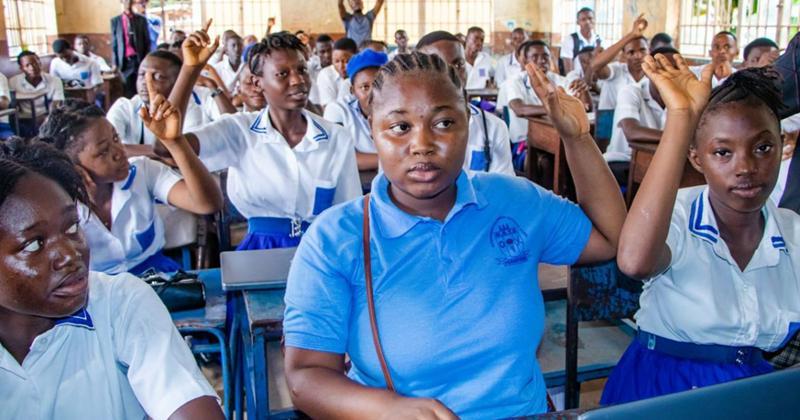
Africa-Press – Sierra-Leone. Today, Sierra Leone stands at a pivotal crossroads. Though we have moved past civil war and national strife, a silent crisis continues to deepen a crisis of civic identity. We increasingly see a generation disconnected from the nation’s democratic values, unaware of their civic rights, and unengaged in public life.
But how did we get here? And more importantly, how do we recover? The answer may be more straightforward than we think. It lies in the urgent revival of civic education in every school and university nationwide. What Happened to Civic Education? There was a time when civic education was not just a subject, it was a value system woven into the fabric of our schooling.
We learned not just how to read and write but also how to live together, respect one another, and love our country. Over time, this vital subject faded from our curricula. Civic education became optional or ceremonial. The result? A generation less informed about governance, accountability, national symbols, and their role in shaping the country’s future.
This is not just an educational gap—it is a national emergency. Why Now? Sierra Leone faces rising tribal polarization, political intolerance, low youth participation in public discourse, and weakened institutional trust. These are not just political issues but symptoms of a deeper civic erosion.
Civic education is more than classroom knowledge. It is a nation-building tool. It creates citizens who:- Understand their rights and responsibilities- Embrace unity in diversity – Demand accountability from public officials- Participate constructively in democratic life Civic Education: From Primary to University. Let us imagine a new national journey where:- In primary schools, pupils are taught about the flag, the Constitution, and respect for fellow citizens.- In secondary schools, students debate national development, justice, and service.- In universities, young adults engage in policy labs, civic simulations, and leadership development rooted in values. Our universities must become incubators for democratic culture, not merely certification centers.
The future leaders we are grooming must learn how to govern and why to govern with integrity. Lessons From Else, where Post-genocide Rwanda introduced the Itorero civic education model to rebuild national consciousness. South Africa made civic engagement a pillar of its post-apartheid healing. These nations recognized that sustainable peace and development are impossible without a civic-minded population.
In Sierra Leone, we must take our civic healing seriously. Education is the vessel, and values are the compass.
Recommendations for Action. As Chairman of the Local Government Service Commission and a lifelong educator, I propose the following strategic actions:
Reinstate and mainstream civic education across all academic levels.
Develop a national civic curriculum tailored to our context
Train teachers and university lecturers to deliver civic content meaningfully.
Create civic leadership clubs in schools and community institutions.
Promote youth-led civic initiatives across local councils and districts.
Foster partnerships between government, schools, civil society, and media.
This work must be coordinated across ministries, communities, and educational bodies. The future of our democracy depends on it. Education as a Pillar of National Cohesion Let us remember: every generation is shaped by what it is taught—and what it is allowed to forget. The classroom must be reclaimed as a sacred space for nation-building If we do not teach our young people to be citizens, someone else will teach them to be consumers of division, extremism, and apathy. Now is the time to reunite Sierra Leone through education, not just academic, but civic. Call to Action invites stakeholders across Sierra Leone—educators, policymakers, students, and parents—to join this vital mission.
What civic values do you think are missing in our current system? How can your institution champion civic education today? Share your ideas, tag a colleague in education or local governance, and begin a new national conversation—one classroom at a time.
For More News And Analysis About Sierra-Leone Follow Africa-Press





